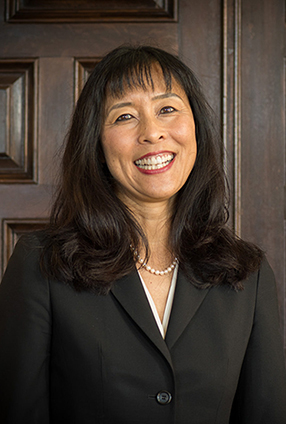Jacqueline Chen — Lecture
| Event Date: | November 8, 2018 |
|---|---|
| Speaker: | Jacqueline Chen |
| Speaker Affiliation: | Distinguished Member of Technical Staff
Reacting Flows Department Sandia National Laboratories |
| Sponsor: | Aeronautics & Astronautics and Mechanical Engineering |
| Time: | 4:30-5:30 p.m. |
| Location: | WALC 1055 – Hiler Theater |
| Contact Name: | Maria Longoria-Littleton |
| Contact Phone: | +1 765 49-40015 |
| Contact Email: | mlongori@purdue.edu |
| Priority: | Yes |
| School or Program: | College of Engineering |
| College Calendar: | Show |
DNS of Turbulent Combustion in Complex Flows
Abstract
Direct numerical simulation methodology and computing power have progressed to the point where it is feasible to perform DNS in mildly complex geometries representative of flow configurations encountered in practical combustors. These complex flows encompass effects of mean shear, flow recirculation, and wall boundary layers together with turbulent fluctuations which affect entrainment, mixing and combustion. Examples of recent DNS studies with complex flows relevant to gas turbine and internal combustion engines will be presented. These include sequential reheat combustion in the presence of mixed combustion modes – hydrogen/air autoignition and flame propagation in a rectangular duct-in-a-duct configuration [1], stabilization of a turbulent premixed ethylene/air flame behind a backwards facing step [2], and autoignition of a n-dodecane jet at diesel conditions [3]. In many of these complex flows there are regions of low-intensity turbulence with mean recirculation, flame-wall interaction in boundary layers, and shear generated turbulence interacting with ignition kernels or a flame brush. The mean shear and boundary layer provide sources of turbulence generation which interact with the flame brush. These complex flows may induce different turbulence-chemistry interactions from those observed in isotropic decaying or forced homogeneous turbulence. New numerical diagnostics have been developed to understand the mixed combustion regimes based on extensions of the chemical explosive mode analysis (CEMA) [4]. Finally, prospects for computation of complex flows at the exascale will be discussed.
Biography
Jacqueline H. Chen is a Distinguished Member of Technical Staff at the Combustion Research Facility at Sandia National Laboratories. She has contributed broadly to research in direct numerical simulations of turbulent combustion elucidating turbulence-chemistry interactions in turbulent flames and ignition processes. These interactions govern the overall combustion rate, emissions, the degree of local extinction and ignition timing. She and her collaborators have discovered new physical insights related to turbulent premixed and stratified flame propagation, preferential diffusion, intrinsic flame instabilities, lifted flame stabilization in (non)heated flows, reactive scalar mixing, compression ignition and flashback in boundary layers. These benchmark simulation data have also been used by the modeling community to validate turbulent combustion models.
To achieve scalable performance of DNS on increasingly complex heterogeneous computer architectures, she leads an interdisciplinary team of computer scientists, applied mathematicians and computational scientists to develop combustion direct numerical simulation software with complex chemistry and multi-physics for exascale supercomputers. She is a member of the National Academy of Engineering and a Fellow of the Combustion Institute and the American Physical Society. She received the Combustion Institute’s Bernard Lewis Gold Medal Award in 2018 and the Society of Women Engineers Achievement Award in 2018. She is a Director of the Combustion Institute, a former Editor of Flow, Turbulence and Combustion, Co-Editor of Proceedings of the Combustion Institute, Volumes 29 and 30, 2008, 2010 and has served on numerous editorial boards and advisory committees.

